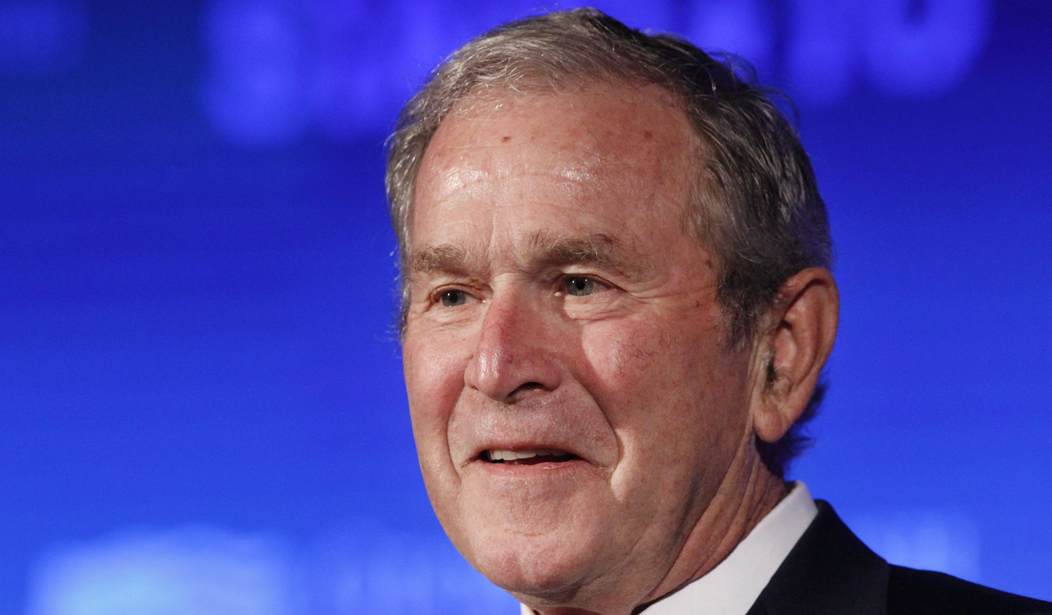Some say the War on Terror ended when W. declared victory for Operation Iraqi Freedom on the deck of the USS Abraham Lincoln — superficial and fleeting though it was.
If by “mission accomplished,” W. meant plunging Iraq into decades-long civil war fueled by Iranian partisans and unleashing ISIS on the world — which I would content was, in fact, a success for defense contractors who profit from endless war — then his self-congratulatory speech was warranted.
Others say the War on Terror ended with the nighttime assassination of Osama bin Laden in 2011 or the disastrous 2021 pullout from Afghanistan, or any of a number of dates on the calendar.
Those are all fine moments in time to demarcate the end of the War on Terror, or, alternatively, the War of Terror, as Borat termed it.
Since Congress never actually declared war — as it hasn’t for any “armed conflict” since World War II — as it is Constitutionally required to do to sanction any war, the amorphous War on Terror has no objective start or end date.
Via Just Security, 2022:
Despite the two-decades old “global war on terror” largely fading from the front pages, the United States continues to prosecute a sprawling armed conflict against al-Qaeda and its “associated” and “successor” forces, including ISIS. Just in the last few years, U.S. troops have engaged in counterterrorism-related activities in at least 85 countries, and have had a combat role in at least eight countries.
The United States, as of 2022, was engaged militarily in no fewer than eight countries — not one of which the U.S. is officially at war with.
Year after year, the Pentagon’s budget bloats, all while it fails audit after audit with no consequences. That budget demands justification.
Continuing:
In justifying continued U.S. counterterrorism operations, including detention at Guantanamo Bay, U.S. officials maintain that the armed conflict stemming from the Sept. 11, 2001 attacks is ongoing. President Joe Biden’s declaration that the United States was no longer at war following its withdrawal from Afghanistan was, at best, premature. Indeed, while large-scale ground combat operations in Afghanistan, Iraq, and Syria have ceased, the Biden administration has made clear it remains poised to increase “over-the-horizon” operations in the form of drone strikes and special operations raids.
But even if tomorrow the DoD announced it was terminating its operations in all eight countries full-stop, I submit that, even then, the War on Terror would continue in its new form — against the American people.
The very same siege tactics the military used against Iraqi insurgents are now deployed against “domestic terrorists.”
The federal government has turned its intelligence-gathering and war-making apparatus inward, targeting what the DHS terms “domestic terrorists.”
January 6 marked a watershed moment, the significance of which, even for all its fanfare, is under-appreciated in terms of the weaponization it has enabled of the national security state against the people who fund it and whom it is theoretically designed to protect.
That’s called irony, and it’s a bitter pill to swallow. Nothing happens in a vacuum, and all of that senseless military adventurism overseas for all of these decades since WWII is not without consequence for the population that enabled it.
This isn’t to say that we the American people deserve the boot on on necks now — only that we should recognize where it came from and what facilitated it, like the Orwellian PATRIOT Act. The war machine, as Eisenhower warned all those years ago, is a predator in constant search for prey.










